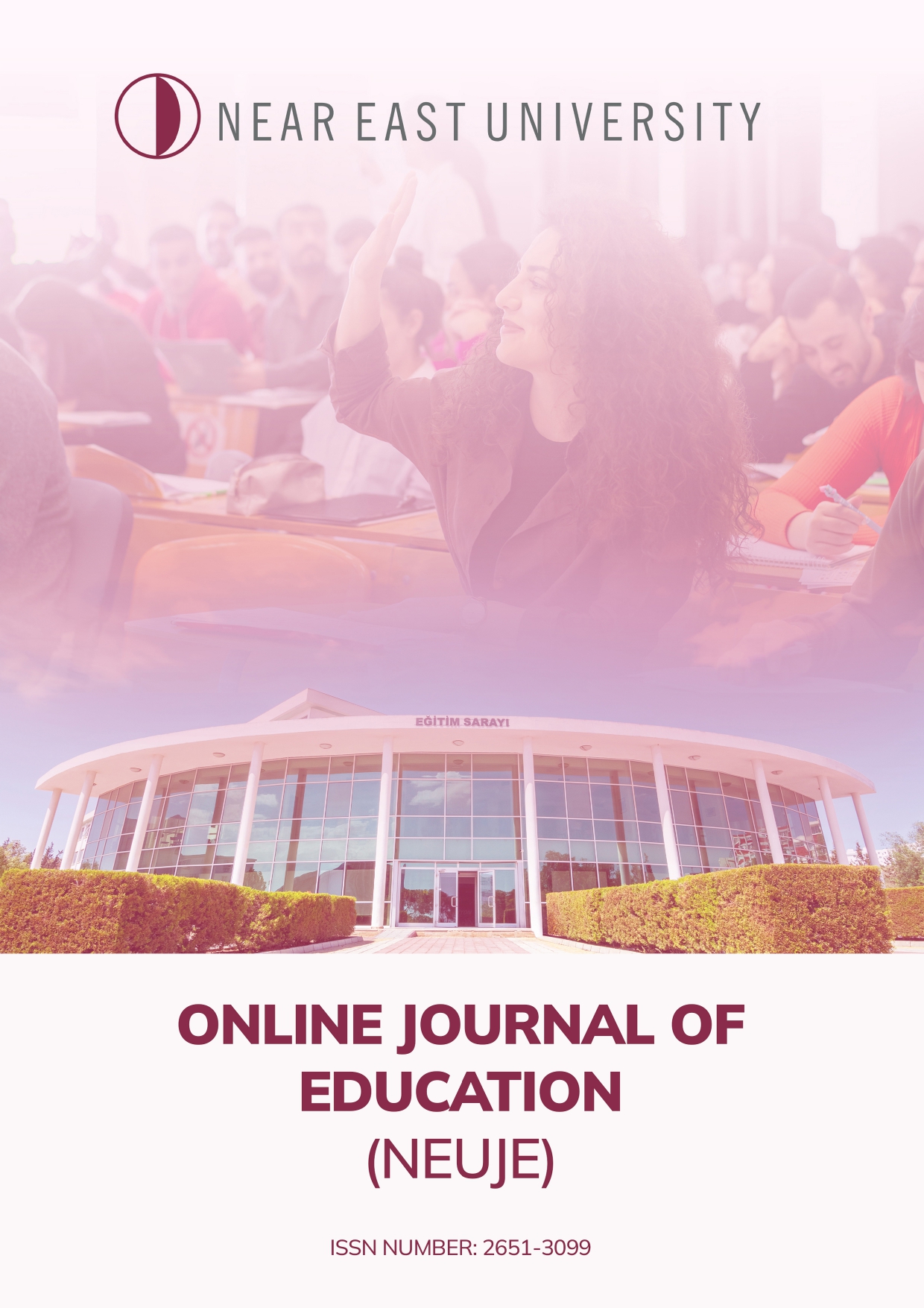
Focus & Scope
The Near East University Online Journal of Education - NEUJE is a peer-reviewed biannual online journal. Contributions may include research papers, case studies, tutorials, courseware experiences, evaluations, review papers, and viewpoints. Near East University Online Journal of Education - NEUJE primarily encourages the submissions of the authors whose primary purpose is to report the methods and results of an empirical study on all topics related to:
- History Education
- Economic, social and cultural dimensions of education,
- Pedagogical, political, philosophical, legal, ethical aspects in education,
- The use of education and communication technologies,
- Organization in education,
- Curriculum and material development,
- Teacher training,
- Professional experiences,
- Learning and teaching Resources,
- Use of technology in education and teaching,
- Guidance and counseling,
- Communication,
- Language education,
- Science education
- Production of quality in education, educational management
- Interaction
- Education and teaching in the future,
- Education and globalization,
- Peace education,
- Educational Technology,
- Distance education,
- Equity, justice and human rights in education,
- Education and industry partnerships,
- Professional development,
- Measurement, quality control and evaluation in education,
- Standards and assessment
Evaluation criteria
Material must be original, scientifically accurate, and in good form editorially. The manuscript should be informative, summarizing the basic facts and conclusions, and maintaining a coherence and unity of thought.
- Value or usefulness to field or profession,
- Adequacy of design and accuracy of analysis,
- Presentation and interpretation of findings, discussion and conclusions,
- Inclusion of appropriate implications for practice and policy,
- Overall clarity of ideas and expression,
- Significant and timely,
- Consistency with existing literature,
- References to relevant existing work, and
- Grammatical construction; writing style; use of non-sexist language.
Publication Ethics and Malpractice Statement
The publication of an article in the peer-reviewed journal the Near East University Online Journal of Education - NEUJE is a reflection of the quality of the work of the authors and the institutions that support them. Peer-reviewed articles support and embody the scientific method. It is therefore important to agree upon standards of expected ethical behavior for all parties involved in the act of publishing, including the authors, the peer-reviewers, the journal editors and the publisher. This publication ethics and malpractice statement is based on COPE’s Best Practice Guidelines for Journal Editors.
DUTIES OF EDITOR
Publication decisions
An editor is responsible for deciding which of the articles submitted to the journal should be published. The editor must evaluate manuscripts for their intellectual content without regard to race, gender, sexual orientation, religious belief, ethnic origin, citizenship, or political philosophy of the authors.
Disclosure and conflicts of interest
Unpublished materials disclosed in a submitted manuscript must not be used in an editor's own research without the express written consent of the author. Privileged information or ideas obtained through peer review must be kept confidential and not used for personal advantage.
Editors should recuse themselves (should ask a co-editor, associate editor or other member of the editorial board instead to review and consider) from considering manuscripts in which they have conflicts of interest resulting from competitive, collaborative, or other relationships or connections with any of the authors, companies, or institutions connected to the papers.
Response to ethical issues
An editor should take reasonably responsive measures when ethical complaints have been presented concerning a submitted manuscript or published paper, in conjunction with the publisher.
DUTIES OF REVIEWERS
Contribution to editorial decisions
Peer review assists the editor in making editorial decisions and through the editorial communications with the author may also assist the author in improving the paper. Any selected expert who feels unqualified to review the research reported in a manuscript or knows that its prompt review will be impossible should notify the editor and excuse himself from the review process.
Confidentiality
Any manuscripts received for review must be treated as confidential documents. They must not be shown to or discussed with others except as authorized by the editor.
Standards of objectivity
Reviews should be conducted objectively. Personal criticism of the author is inappropriate. Referees should express their views clearly with supporting arguments.
Acknowledgment of sources
Reviewers should identify relevant published work that has not been cited by the authors. Any statement that an observation, derivation, or argument had been previously reported should be accompanied by the relevant citation. A reviewer should also call to the editor's attention any substantial similarity or overlap between the manuscript under consideration and any other published paper of which they have personal knowledge.
Disclosure and conflict of interest
Reviewers and editors are required to declare any and all potential conflicts of interest. Reviewers should not consider manuscripts in which they have conflicts of interest resulting from competitive, collaborative, or other relationships or connections with any of the authors, companies, or institutions connected to the papers.
Publication Fee
The Near East University Online Journal of Education - NEUJE does not charge authors for any submission, article-processing or publication fee. Near East University currently covers the cost of initial and ongoing publication activities. Thus, publication is absolutely free.
Plagiarism Screening Policy
Every submission is processed through plagiarism software (Turnitin & iThenticate) through Near East University library. Once an act of plagiarism is detected, the submission is rejected and further submissions from the same author(s) are not accepted. Furthermore, the author(s) of the plagiarized works are contacted and informed about the incident immediately.



